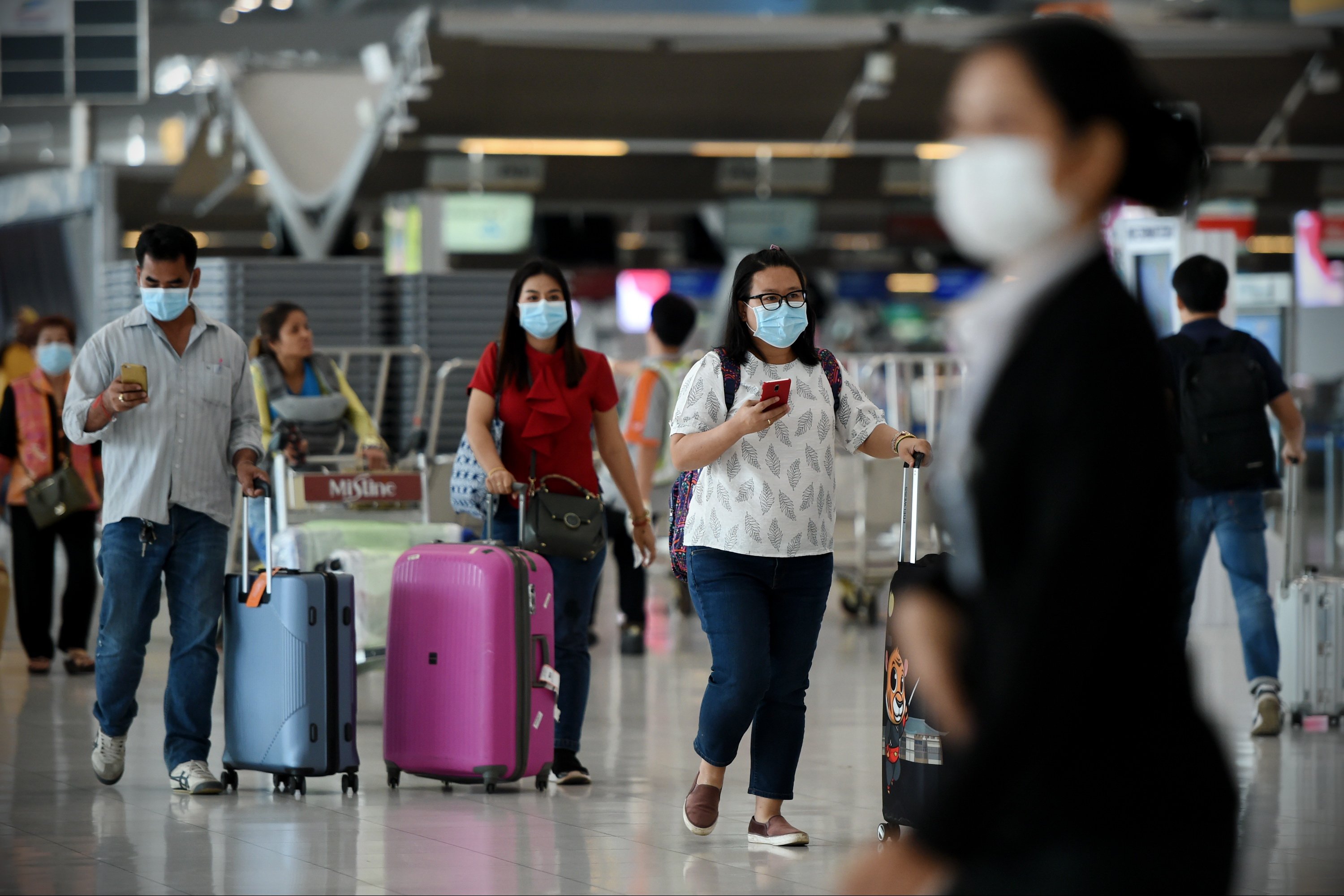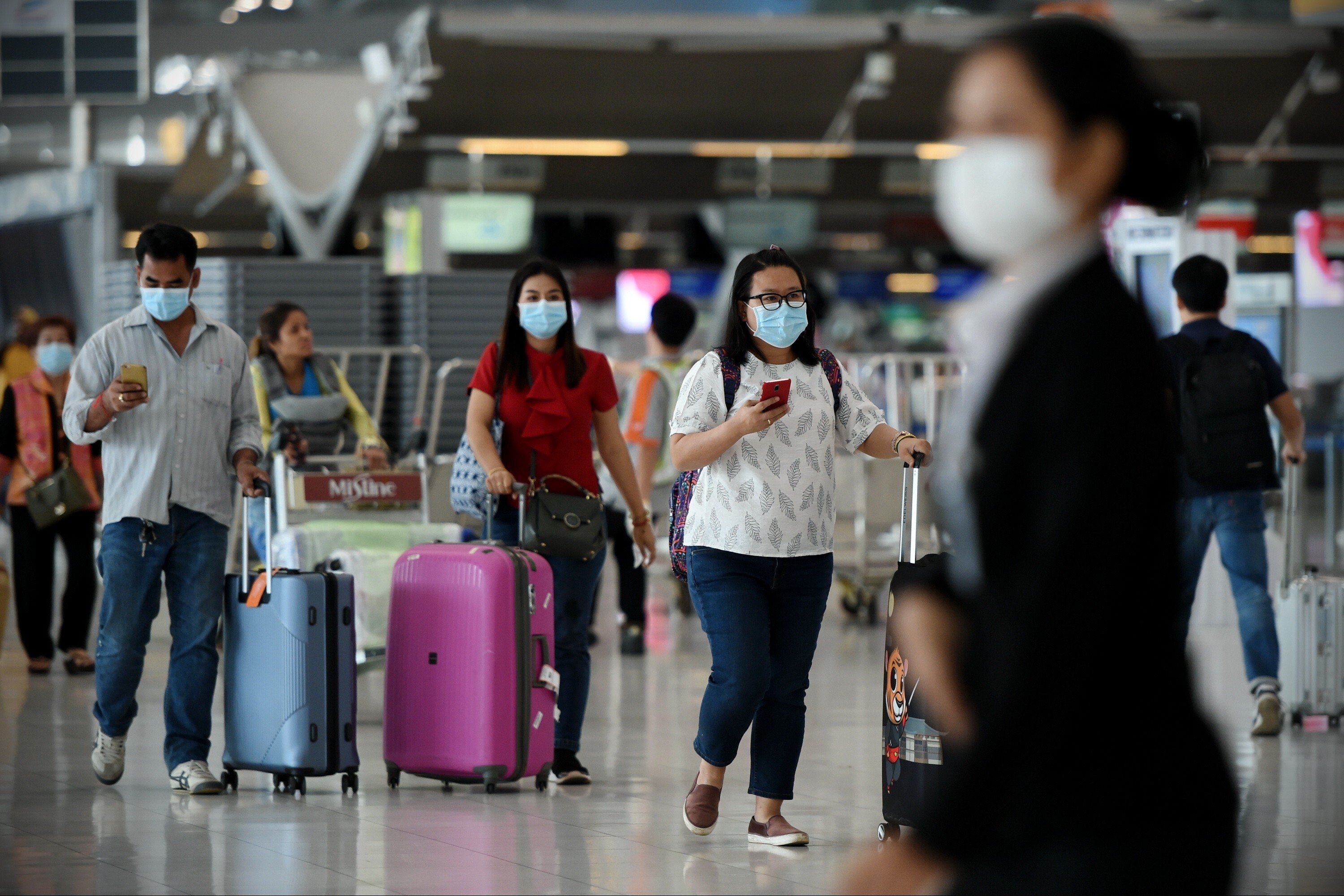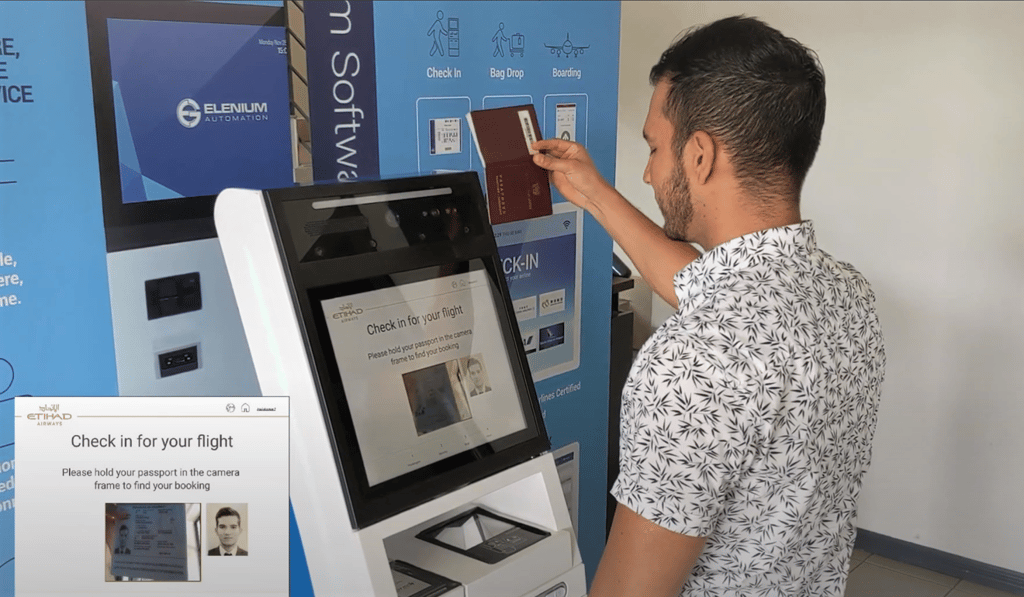

- Elenium Automation's hands-free, self-service check-in screening technology uses machine-learning tools to detect signs of illness
- Grab, a ride-hailing company that operates throughout Southeast Asia, also uses the technology to identify bogus transactions, gain passenger insights and enhance online travel maps
While most international travel has come to a halt amid the global spread of the coronavirus disease, Covid-19, an Australian technology company has come up with a smart passenger kiosk that may provide clues about what the future holds for air travel.
The portable, cloud-based kiosk, unveiled by Elenium Automation in April, is both a health-screening device and a self-service check-in machine. The new hands-free technology used to assess a passenger’s vital signs – which can also be retrofitted into any existing check-in kiosk – is available at a time when countries are looking for solutions to isolate travellers with flu-like symptoms and safely reopen their economies.
While a passenger stands in front of the device to check in for a flight, it simultaneously detects the person’s temperature, heart rate and respiratory rate for possible symptoms of an illness. Travellers can also control the kiosk’s hands-free screen with their voice or head movements – avoiding the need for any physical contact.

The kiosk makes use of artificial intelligence (AI) – a technology that allows computer systems to perform tasks such as voice recognition and biometric identification, that normally require human intelligence.
“When Covid-19 happened, we started thinking how people will interact at the airport moving forward,” Aaron Hornlimann, the company’s CEO, says. He hopes the device can help the aviation industry identify and intercept symptomatic passengers and resume services amid the pandemic.
